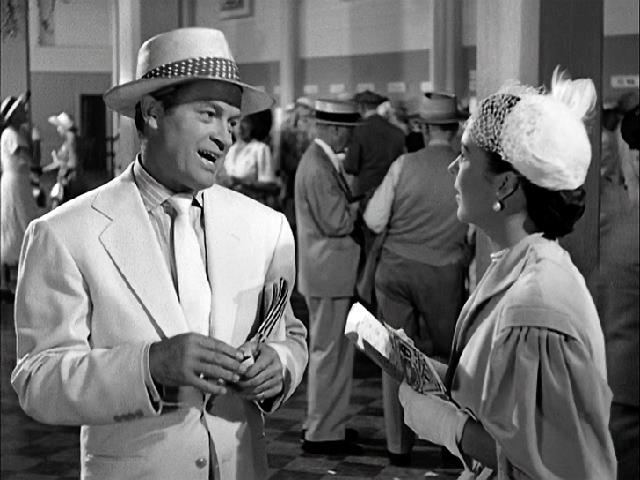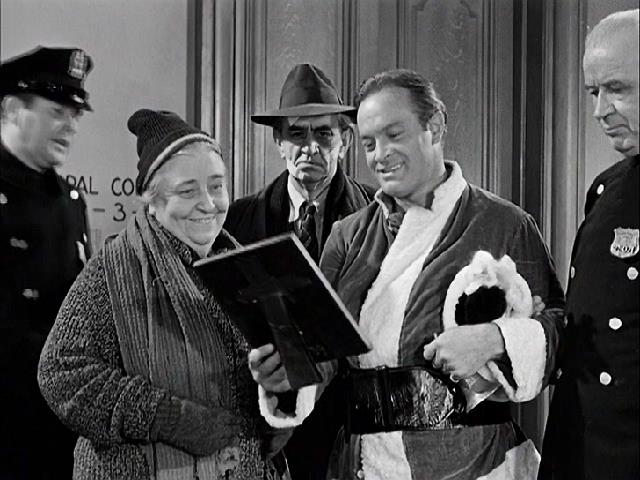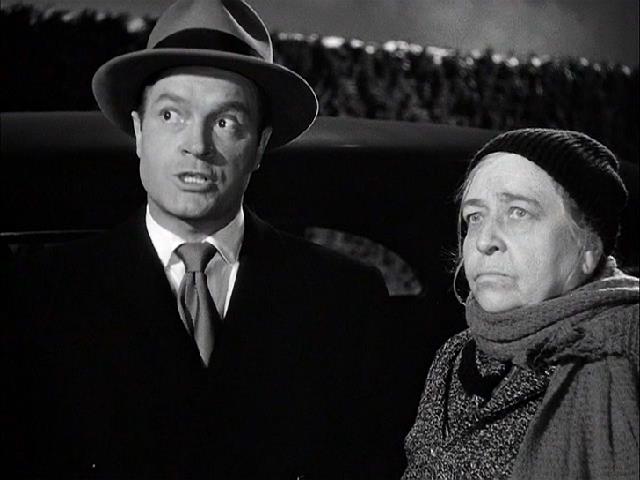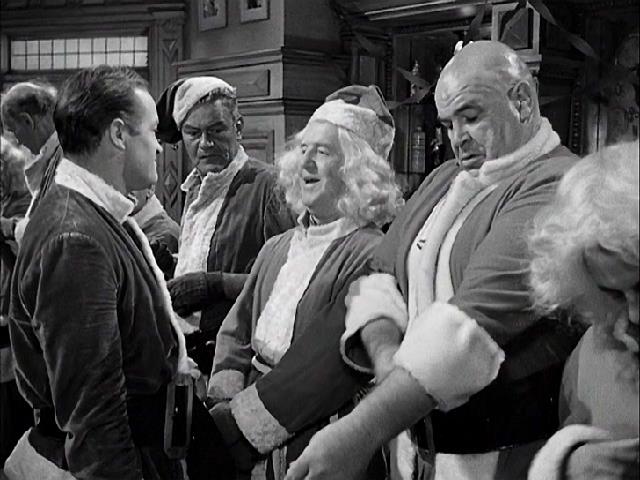It’s hard for people whose idea of Bob Hope is formed by his later movies and his increasingly dire TV specials to remember that there was a time when he was one of the sharpest comedians around. Oh, Hope was never deep. There’s nothing cerebral about his work, though Hope himself carries an air of having a veneer of sophisticated hipness. His tendency to rely on topical material has made it all but incomprehensible to viewers unfamiliar with the era in which his films were made. But from 1939 with The Cat and the Canary and 1952 with Son of Paleface, Hope was the biggest comedy star there was with a run of movies, most of which hold up even today. His breezy personality, his way with a quip, and the fact that he was a passable leading man could and did carry movies that would have been merely average with any other star. The trouble started when Hope refused to acknowledge his age, and it was compounded by the fact that he’d become big enough by 1947 to set up his own production company, Hope Enterprises, though he still released his work through Paramount, with whom he was still under contract. Greater control had its downsides — something that by 1953 became obvious.
The Lemon Drop Kid is from the self-produced era, but it was still first-rate Bob Hope. Hope had hit paydirt for Paramount in 1949 with Sorrowful Jones — a remake of the studio’s Little Miss Marker (1934), based on a story by Damon Runyon. But that had been one of contract pictures, so he naturally wanted to mine the same Runyon territory with his own company — hence The Lemon Drop Kid, which bore little resemblance to the story from which it took its title (and Runyon’s name). Instead, it was a Runyonized Bob Hope vehicle that could at least pass for Runyon with its colorful characters and their streetwise ways.
It’s sentimental stuff, but mostly played for comedy with Hope as a race track tout, who happens to hit on a gangster’s deeply southern girlfriend as a mark. Adopting a ludicrously bogus southern accent, he intrigues her by claiming that the race is fixed and then plays hard-to-get (“I swore on a mess of black-eyed peas and candied yams — it’s messy, but binding”) before selling her — or really her gangster boyfriend — on a losing horse. His only — and hare-brained — chance is getting an extension to pay the gangster’s losses by Christmas. This leads to the Kid setting up an old ladies’ home so he can con his Runyonesque pals into dressing up as Santa Claus and collecting money that he plans on appropriating for himself.
Most of this works wonderfully well, and the Kid’s motley crew of Santas — including perpetual grouch William Frawley and Tor Johnson — are a pure delight. Marilyn Maxwell — a pleasant blonde whose career never quite took off — provides Hope’s love interest, which is interesting in itself. Hope had taken her on USO tours and she became one of his most consistent…extra-marital companions. The two have an easy onscreen chemistry and it’s regrettable that this marked one of her few good roles. (She’d be in two other, lesser Hope films down the road.) This is definitely the high point of her movie career. But then it’s not everyday that you get to introduce a song like “Silver Bells.” Fast-paced, funny, and touching without ever getting gooey, it remains one of Hope’s best movies.








Before you comment
The comments section is here to provide a platform for civil dialogue on the issues we face together as a local community. Xpress is committed to offering this platform for all voices, but when the tone of the discussion gets nasty or strays off topic, we believe many people choose not to participate. Xpress editors are determined to moderate comments to ensure a constructive interchange is maintained. All comments judged not to be in keeping with the spirit of civil discourse will be removed and repeat violators will be banned. See here for our terms of service. Thank you for being part of this effort to promote respectful discussion.